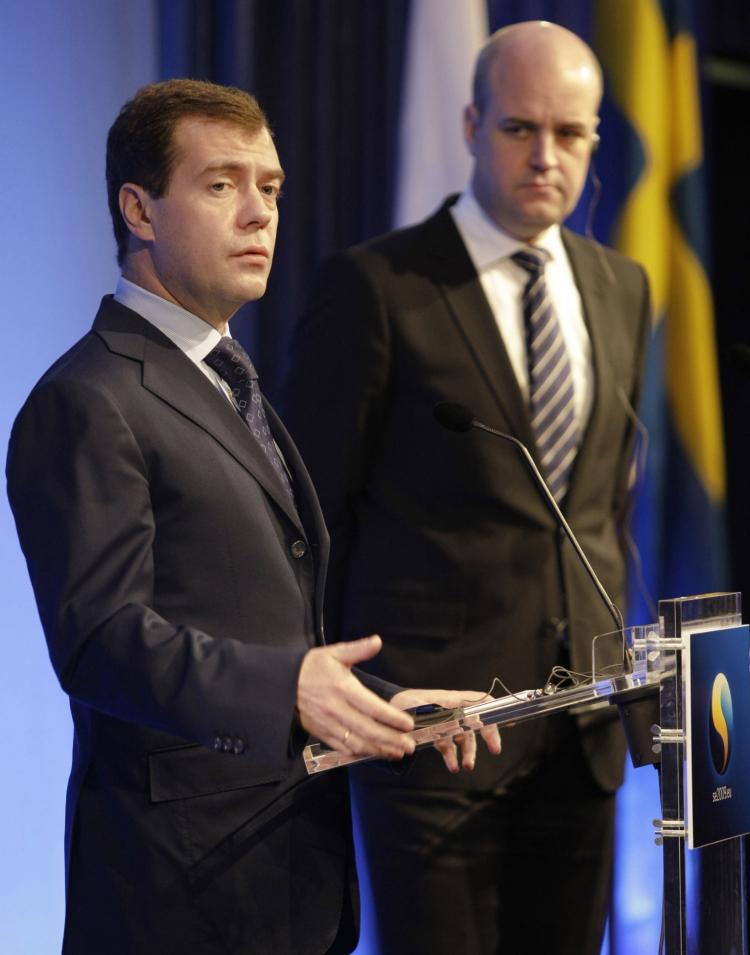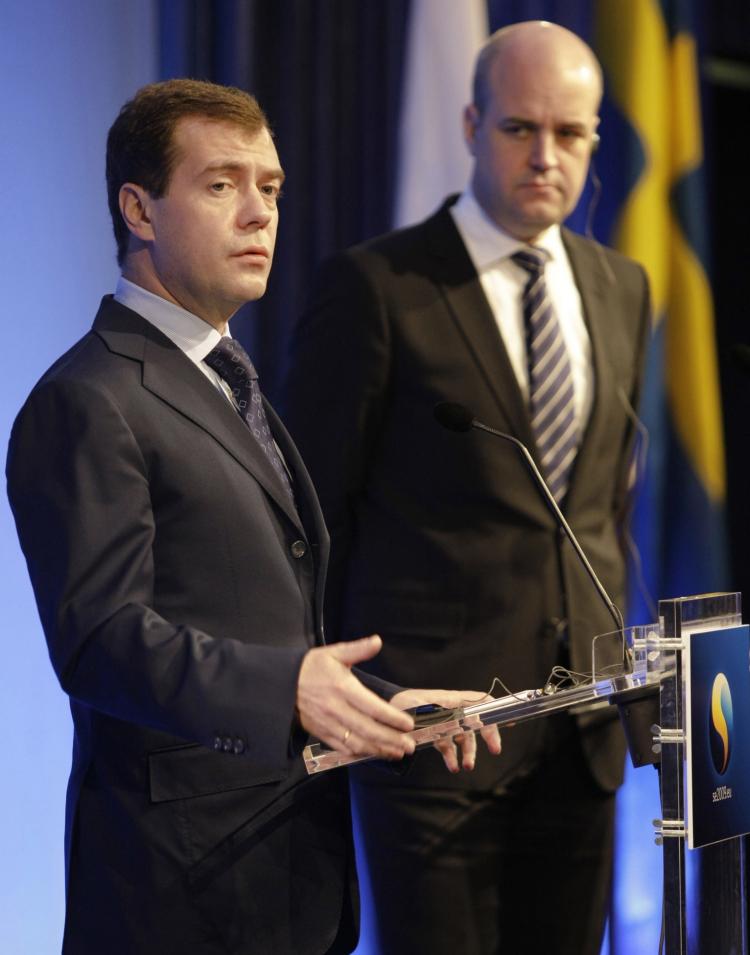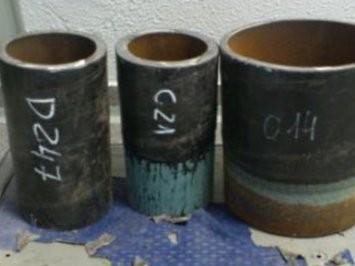BRATISLAVA, Slovakia—The Human rights situation in Russia is an “increasing cause for concern,” said Sweden’s prime minister on Wednesday Nov. 18, after meeting the Russian president during the EU-Russia summit in Stockholm.
Democracy in Russia and conditions for human rights advocates were raised during the more than five-hour long talks, according to Swedish PM Fredrik Reinfeldt, whose country currently holds the rotating EU presidency.
Human rights groups like Memorial in Russia and Human Rights Watch urged EU representatives to put pressure on Moscow. They accused Russian authorities of insufficient investigation of recent murders and kidnappings in the Caucasus region, “allowing the atmosphere of impunity to flourish.”
Dmitry Medvedev, Russia’s chief, chose not to respond to the critique, and instead addressed development in Caucasus, where there are still disputes with the EU related to Russia’s invasion of Georgia in August 2008.
On their 24th bilateral summit, EU and Russian leaders discussed issues related to trade and energy. The European Union depends on Russia for gas, which is mostly transported through Ukraine.
Moscow and Brussels signed an early warning agreement on Nov. 16, agreeing to notify each other of any problems affecting energy supplies, but Russia didn’t gave a guarantee that last winter’s stoppage of gas deliveries would not be repeated. Last January, millions of households in Europe were without heating due to a cutoff caused by Russia’s gas price dispute with Ukraine.
Medvedev expressed his overall satisfaction with the summit’s outcome. “I am pleased by the fact that Russia-EU summits were no longer as strained as before and has acquired the quality of routine work, which is normal for this long-standing European institution,” said the Russian president at a press conference after the summit. According to Medvedev, the text of the Russia-EU basic agreement will be ready ”very soon.”
EU leaders also announced that Russia made a pledge to cut his country’s greenhouse gas emissions by 20 percent to 25 percent below 1990 levels by 2020. “With the Copenhagen conference starting in just over two weeks, I very much welcome the signal from President Medvedev today of their proposed emissions reduction target of 25 percent. This is indeed very encouraging,” said Jose Manuel Barroso, president of the European Commission.
EU officials are also pushing for Russia’s entry into the World Trade Organization (WTO), hoping the move will help European states to conduct business with Russia. Russia still hasn’t decided whether it wants to join the WTO as a separate country, or together with Kazakhstan and Belarus, its partners in a three-way customs union. “What is important for us is the speed—whichever way is the shortest, we will use that way,” said Medvedev.
Democracy in Russia and conditions for human rights advocates were raised during the more than five-hour long talks, according to Swedish PM Fredrik Reinfeldt, whose country currently holds the rotating EU presidency.
Human rights groups like Memorial in Russia and Human Rights Watch urged EU representatives to put pressure on Moscow. They accused Russian authorities of insufficient investigation of recent murders and kidnappings in the Caucasus region, “allowing the atmosphere of impunity to flourish.”
Dmitry Medvedev, Russia’s chief, chose not to respond to the critique, and instead addressed development in Caucasus, where there are still disputes with the EU related to Russia’s invasion of Georgia in August 2008.
On their 24th bilateral summit, EU and Russian leaders discussed issues related to trade and energy. The European Union depends on Russia for gas, which is mostly transported through Ukraine.
Moscow and Brussels signed an early warning agreement on Nov. 16, agreeing to notify each other of any problems affecting energy supplies, but Russia didn’t gave a guarantee that last winter’s stoppage of gas deliveries would not be repeated. Last January, millions of households in Europe were without heating due to a cutoff caused by Russia’s gas price dispute with Ukraine.
Medvedev expressed his overall satisfaction with the summit’s outcome. “I am pleased by the fact that Russia-EU summits were no longer as strained as before and has acquired the quality of routine work, which is normal for this long-standing European institution,” said the Russian president at a press conference after the summit. According to Medvedev, the text of the Russia-EU basic agreement will be ready ”very soon.”
EU leaders also announced that Russia made a pledge to cut his country’s greenhouse gas emissions by 20 percent to 25 percent below 1990 levels by 2020. “With the Copenhagen conference starting in just over two weeks, I very much welcome the signal from President Medvedev today of their proposed emissions reduction target of 25 percent. This is indeed very encouraging,” said Jose Manuel Barroso, president of the European Commission.
EU officials are also pushing for Russia’s entry into the World Trade Organization (WTO), hoping the move will help European states to conduct business with Russia. Russia still hasn’t decided whether it wants to join the WTO as a separate country, or together with Kazakhstan and Belarus, its partners in a three-way customs union. “What is important for us is the speed—whichever way is the shortest, we will use that way,” said Medvedev.






